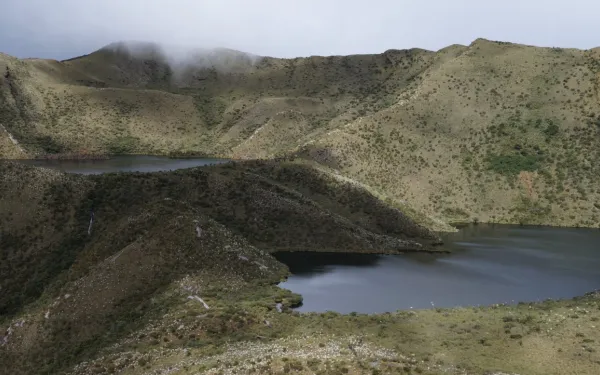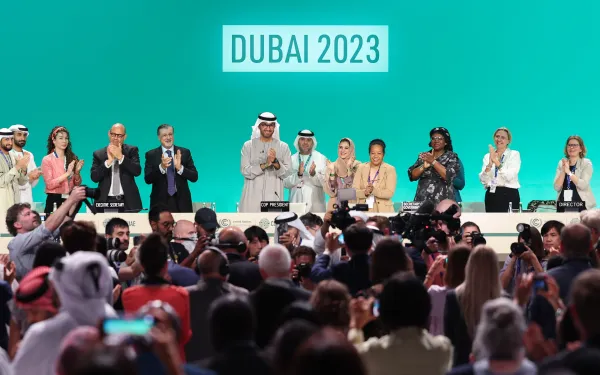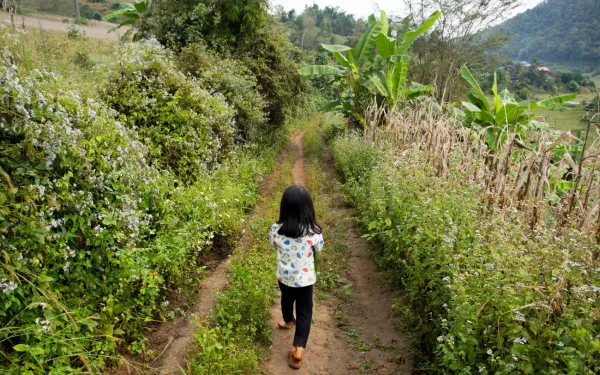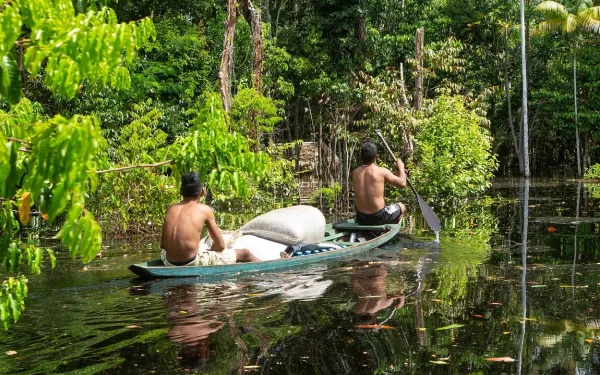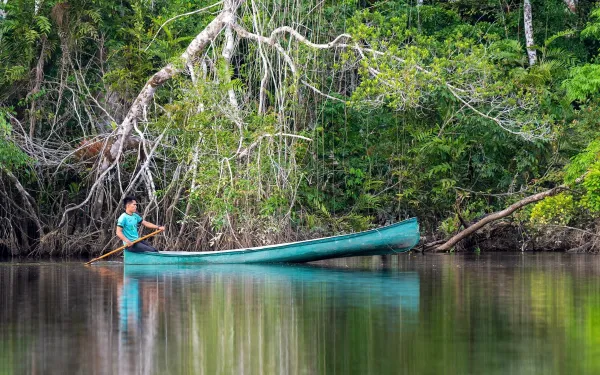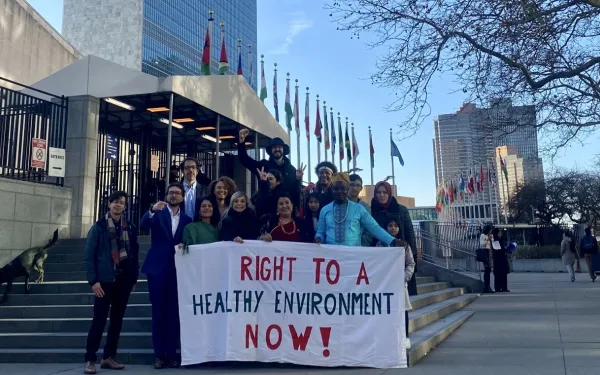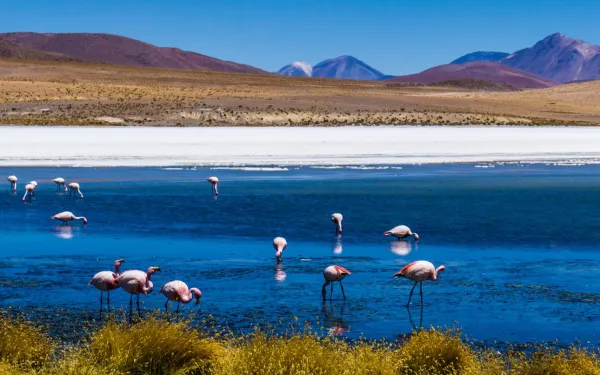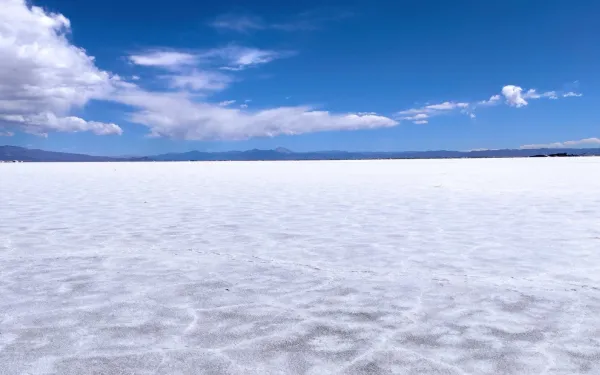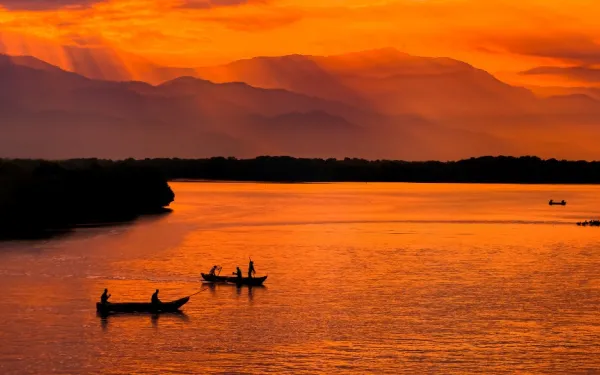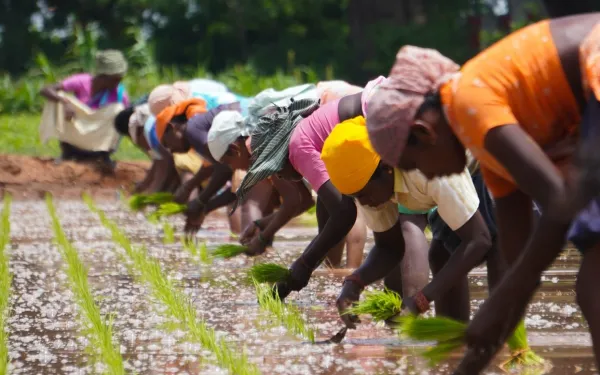It has been a tumultuous year for the world in many ways, and the climate crisis remains one of the greatest challenges we face as a human race.
However, it is always worthwhile to assess and recognize the progress made in the quest for environmental and climate justice. So, as we close 2023, let’s celebrate the agreements, decisions, and milestones that give us hope as we continue to defend the planet and all the creatures that call it home.
1. The world has a treaty to preserve life on the high seas.
After two long weeks of final negotiations, and decades of previous work, United Nations member states have agreed on a High Seas Treaty to protect two-thirds of the ocean, representing nearly half of the surface of the planet.
The new treaty will provide a blueprint for establishing protected areas on the high seas and for assessing and managing human activities that could affect life in this vast area. It will also help achieve the global goal of protecting 30 percent of the ocean by 2030. It has been signed by nearly 80 countries and is in the process of ratification to enter into force.
2. The Ecuadorian people decide to protect the Amazon.
Ecuador held a popular consultation to decide whether to stop oil exploration in part of the Yasuní National Park, one of the most biodiverse areas on the planet. The great news is that about 60 percent of the population chose to protect this region of the Amazon, leaving some of the oil in the ground.
By recognizing the value of a key ecosystem for stabilizing the global climate, this result transcends national boundaries. It is a hopeful sign of climate ambition that can drive the necessary just energy transition worldwide.
3. The UN recognizes activism for the right to a healthy environment.
The United Nations has awarded the 2023 Human Rights Prize to the Global Coalition of Civil Society, Indigenous Peoples, Social Movements and Local Communities for the Universal Recognition of the Human Right to a Clean, Healthy and Sustainable Environment.
The prize is awarded every five years, and this is the first time since its inception that it has been given to a global coalition. It recognizes the coalition's essential role in the recognition of the right to a healthy environment by the UN General Assembly in 2022, as well as decades of civil society efforts and spaces for public participation.
4. Support grows for moratorium on deep-sea mining.
There is currently a call for the International Seabed Authority to pause negotiations on the regulation of undersea mineral exploitation while the necessary information is gathered to understand the impact of this extractive activity on the ocean, species, and people.
Mexico was the most recent signatory in November, joining other countries of the region— including Brazil, Chile, Costa Rica, Ecuador, Panama, and the Dominican Republic— in calling for a moratorium on deep-sea mining. You can join their efforts and learn more by following the hashtag #DefendTheDeep.
5. A Fossil Fuel Non-Proliferation Treaty is in the making.
Colombia, a major coal producer, was the first Latin American country to join the call for a Fossil Fuel Non-Proliferation Treaty, a global initiative to complement the Paris Agreement. Cities, elected officials, and international organizations such as the World Health Organization have joined the call.
The goal of the proposal, led by Pacific Island countries, is to create a follow-up plan to halt the expansion of fossil fuel use and initiate a just transition. For more information, visit the Fossil Fuels Treaty website.
6. There are signs of hope for a "sacrifice zone" in Chile.
Although much remains to be done, recent events give hope that things may be looking up in Quintero and Puchuncaví bays, whose residents have suffered decades of pollution from a series of companies. In May, after 58 years of operation, the furnaces and boilers of the Ventanas smelter were finally shut down.
Similarly, the multinational company that owns the Ventanas II thermoelectric plant, also located in the bay, announced its definitive closure by the end of this year. Furthermore, the Supreme Court has issued three rulings related to the failure to comply with a 2019 judgment—which orders the state to adopt 15 measures to identify the sources of contamination and repair the environmental situation in the area—and provides tools for its enforcement. Read more about the case in Chao Carbón.
7. Court rules the Colombia must take concrete climate action.
Within one year, Colombia's Ministry of Environment and Sustainable Development must adopt concrete measures to adapt to and mitigate the climate crisis. This order was issued by the Council of State, a high court, as the result of a lawsuit alleging that the ministry had failed to comply with the climate commitments contained in national legislation.
Colombia, as the largest exporter of thermal coal in Latin America, has an obligation to include in its climate commitments the real dimension of the impacts of extracting, transporting, and burning coal. This case could become a precedent for strategic and successful climate litigation at the regional and international levels.
8. Cajamarca, Colombia continues to set an example for environmental democracy.
Popular consultations will be respected. A Colombian court made this clear by upholding the legality of the popular consultation in which the people of Cajamarca rejected AngloGold Ashanti's La Colosa gold mega-mining project.
The ruling represents a triumph for participatory democracy and the defense of peasant territories against extractivism. It sets an important precedent for respecting other popular consultations throughout the country and serves as an example for the rest of the region.
9. A regional alliance to protect Andean wetlands is born.
The Alliance for Andean Wetlands is a coalition of social and environmental organizations that aims to promote the protection and conservation of Andean wetlands, water, biodiversity, territories, and the lives of indigenous and campesino communities in Latin America, particularly in Argentina, Bolivia, and Chile.
Andean wetlands— including salt flats, lakes, and lagoons —are globally recognized as ecosystems of high ecological and social importance. However, they are also very fragile and threatened by the climate crisis and by extractive activities such as the mining of lithium, copper, and other minerals considered "critical" for the transition to new forms of energy production.
10. AIDA celebrates 25 years of working for a healthy environment.
This year we celebrate our 25th anniversary, a quarter century of defending the right to a healthy environment in Latin America. Our journey and our impact have been made possible by a great community of allies with whom we have worked and with whom we share this year of celebration.
This milestone enabled us to reflect on our accomplishments, which are reflected in our 2023 Annual Report, and to define a vision for the coming years focused on the quest for climate and environmental justice in the region. Thank you for being part of these 25 years and the decades to come!
Read more 